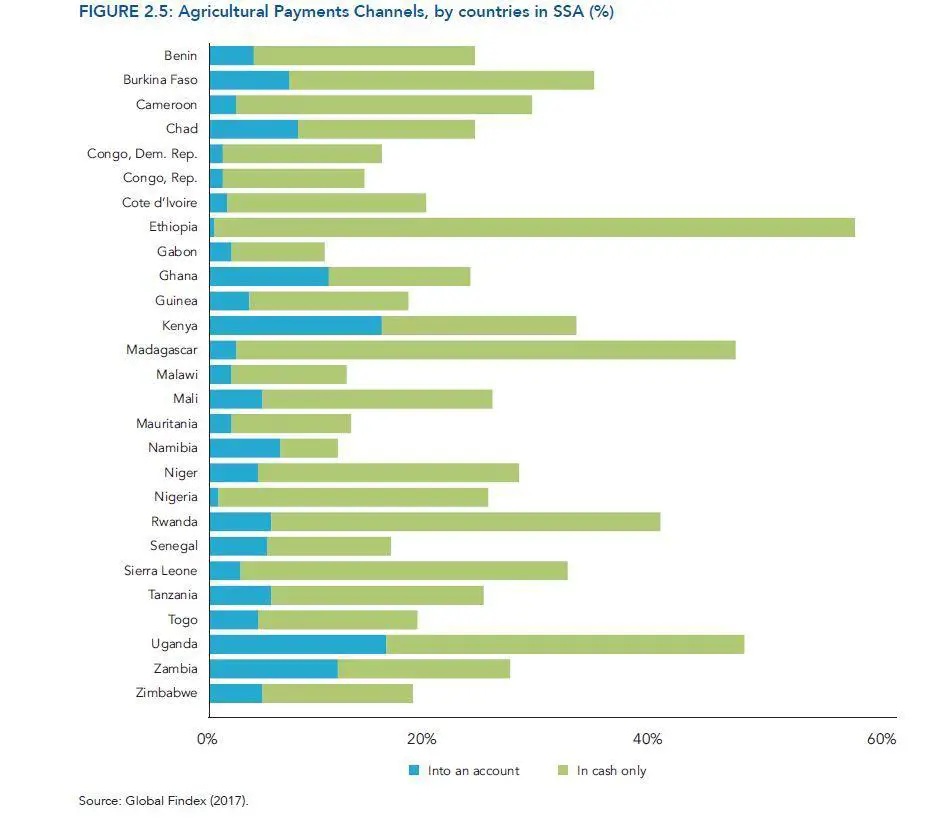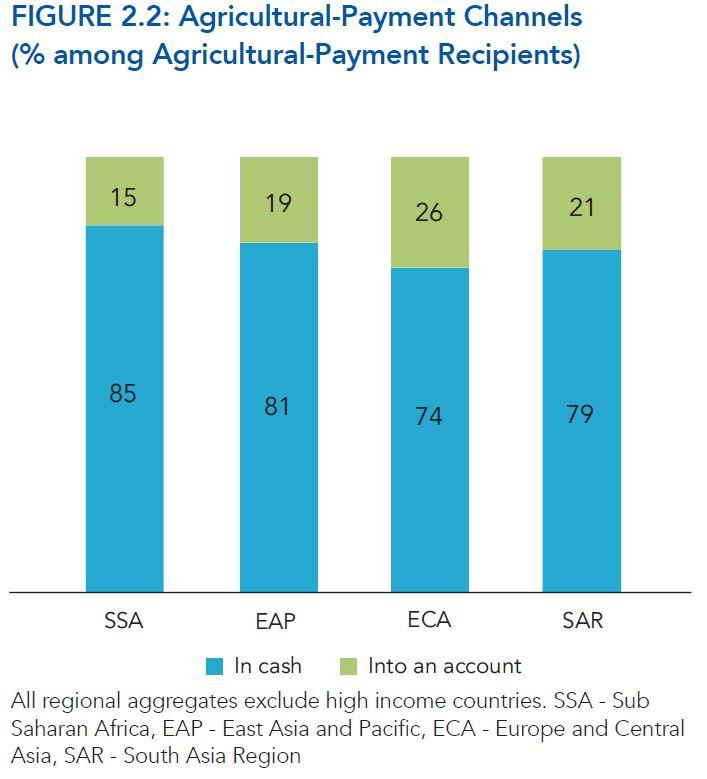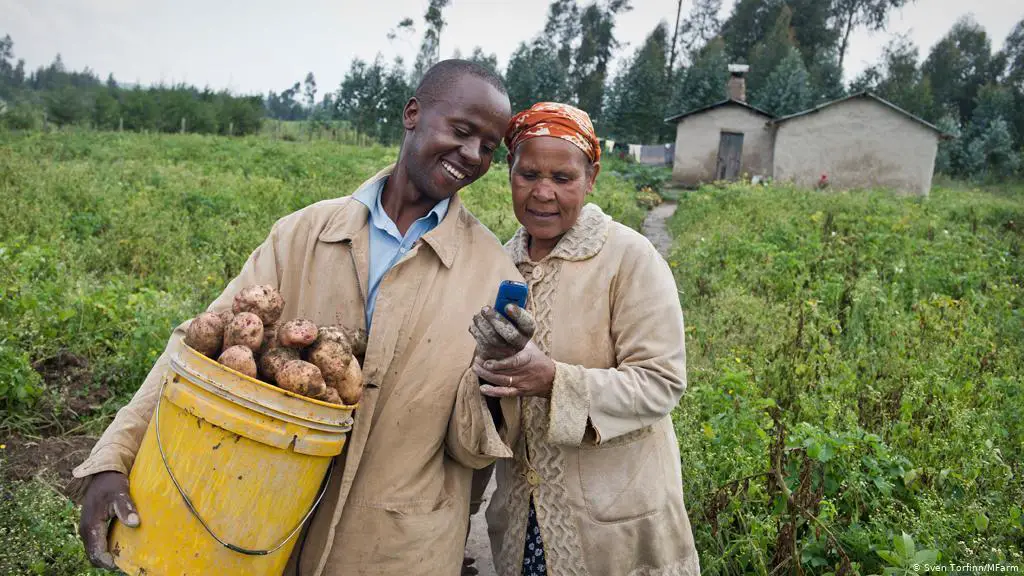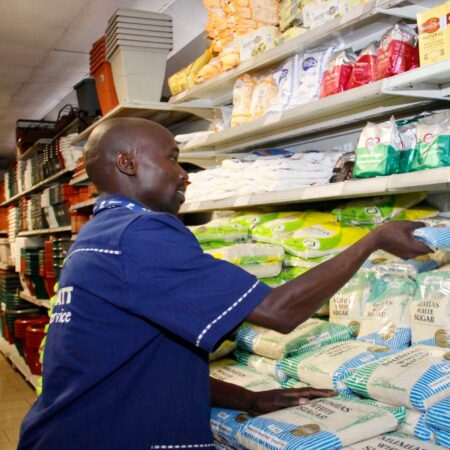It is unfair to mention African development pillars without mentioning the agriculture sector which employs nearly half of the population of sub-Saharan Africa (SSA).
The sector has enormous benefits to the continent, where farmer-centred organizations such as AGRA (Alliance for a Green Revolution in Africa) argue that nearly one-half of the young population is involved in the continent’s 60 million farms.
It is with no doubt that African farms stand to be the next profitable food market suppliers of the world.
“Out of total urban food sales of roughly US$200 to US$250 billion per year, over 80 per centcomes from domestic African suppliers,” according to AGRA.
Nearly 23 per cent of SSA’s GDP comes from agriculture (McKinsey, 2019); the sector is responsible for providing decent income, growth and poverty reduction for SSA.
The region’s food market was valued at $300 billion in 2017 and it could be worth around $1 trillion ten years from now (World Bank, 2020).
All these numbers and facts do not make up for a utopian horizon for farmers to dwell upon and reap unrestrained benefits. Sadly, there are a few hurdles to jump, and one of them is the lack of formal financial services for farmers.
Also Read: Kenyan youth to benefit from World Bank-Gov’t initiative
Farmers’ financial inclusion is of paramount importance to the region, as it allows individuals and firms to take advantage of business opportunities, make sound investment and save for retirement and insure against risks (World Bank, 2020).
This narrative is heavily argued within the World Bank’s (WB) September 2020 report, titled Digitization of Agribusiness Payments: Building a Ramp for Farmers Financial Inclusion and participation in Digital Economy.
Now digitization of payment as a means of payment made electronically into a transaction account presents an opportunity to incorporate more farmers to transaction accounts.
According to the WB, the report aims to present the rationale for the digitization of agribusiness payments in SSA, assess the current status of digitization using demand and supply-side data, and identify key actions that can help accelerate digitization.
Further, the report drew an analysis of financial-inclusion data (covering 27 countries in SSA)from the Global Findex database, a survey administered to select agribusinesses active in SSA and case studies of select agribusinesses that responded to this survey.
Farmers’ financial inclusion is key
The financial inclusion landscape in Africa at large has been taking positive steps, doubling from 23 per cent to 43 per cent between 2011 and 2017, mobile money growth in East Africa being a factor, (Brookings, 2019).
The inclusion factor is crucial for sustainable development across the region, and more importantly is can revolutionize the entire payment structure in the farming sector.
It does not only favour poverty reduction but gives a chance to farmers to play with all factors contributing to inclusive growth—borrowing, saving and investing.
The report comes to the table with rather shocking findings, as poverty reduction remains low and agriculture growth too.
“Yet most farmers in the region do not have access to formal financial services. The 2017 GlobalFindex survey finds that among individuals in SSA who report receiving agricultural payments, a good proxy for farmers who are selling at least some portion of their products in the market,fewer than one in six reports receiving an agricultural payment through an account,” according to the report.

The survey went further and highlighted that among the population segment who report saving and borrowing, only four farmers save at a formal financial institution. While most depend on traditional means—saving in kind, cash at home, depending on family and friends or informal service providers such as savings groups, saving collectors and money lenders.
The report argued that in 2017, 30 per cent of adults in sub-Saharan Africa reported having received payments for the sale of agricultural products within the past year and that 85 per cent of these payments were received in cash only, rather than into formal financial accounts.

The inclusion approach is quite fruitful for the farming landscape in Africa—which is already underway to utilize its inter–regional trade pact (African Continental Free Trade Area) which anticipates revitalizing business operations and marketing across the continent.
As Africa braces itself to reap benefits in the agriculture sector, it has also to be well-positioned within digital payment systems—which are the future of finances in Africa.
The World Bank argues that agricultural output value is yet to be tapped effectively and drive financial inclusion.
“Eighty per cent of Africa’s food consumption is through purchases by urban and rural consumers (AGRA 2019). These include large enterprises as well as micro, small, and medium-scale enterprises that play a significant role in the post-farmgate supply chain, from logistics and processing to distribution and retail. These businesses already provide a significant share of the credit needs of the farming sector, but since this financing is primarily aimed at meeting agricultural needs, the non-agricultural financial-service needs of the farmers remain unaddressed,” World Bank report states.
The digitization of payments is somewhat of a lift for farmers to ascend to financial inclusion and utilize these untapped accounts. Hence—available data in the report suggest that SSA farmers stand to benefit widely.
“According to 2017 Global Findex, 13 per cent of account owners globally reported havingopened their first account to receive private-sector wages, government payments, or payments for the sale of agricultural goods. Among agricultural-payment recipients in SSA receiving payments into an account, 20 per cent report opening their first account to receive an agricultural payment. For those already having an account, receiving payments for the sale of their produce into these accounts offers the opportunity to use these accounts better (BetterThan Cash Alliance 2018),” the report argued.
There are case studies in SSA pointing to this, wherein the digitization of procurement payment has to enhance timely and safe payments, increase savings and productivity.
The payments have indicated signs of benefits in Rwanda. The digitization of payments from tea factories to small-holder tea producers reduced the time from delivery of tea leaves to payment from five to 15 days to a maximum of three days (World Bank, 2020).
While in Malawi, the report highlighted that farmers gained far more benefits—as farmers who opted for direct deposits into savings account for farm produce saved more in the months immediately before the next agricultural planting season and increased both spending on agricultural inputs and crop values in that season.
Rural digital financial services (DFS) ecosystems can be improved and supported by having an introduction of a new stream—as the report highlighted low demand for DFS agents and limited digital payments to merchants, which in return make rural DFS less profitable (World Bank 2020).
“By increasing the transaction volumes necessary to support rural DFS expansion, digitization of agribusiness payments can generate business for both rural DFS agents who offer cash-in, cash-out (CICO) services and DFS merchants who accept digital payments, thus expanding the CICO network and opportunities to use e-money, respectively,” the report indicated.
For the entire financial inclusion agenda for farmers to work, governments ought to continue building national digital economy structures to foster a better working environment for agritech,fintech and e-commerce—which are interlinked with the increase of farmers to use digital payments.
Also partnership is vital—as argued by the report. Strengthening partnership with payment service providers (PSP) is essential. It brings a win-win scenario for PSP, fintech and agribusinesses—which leads to better execution of farmer financial inclusion.











